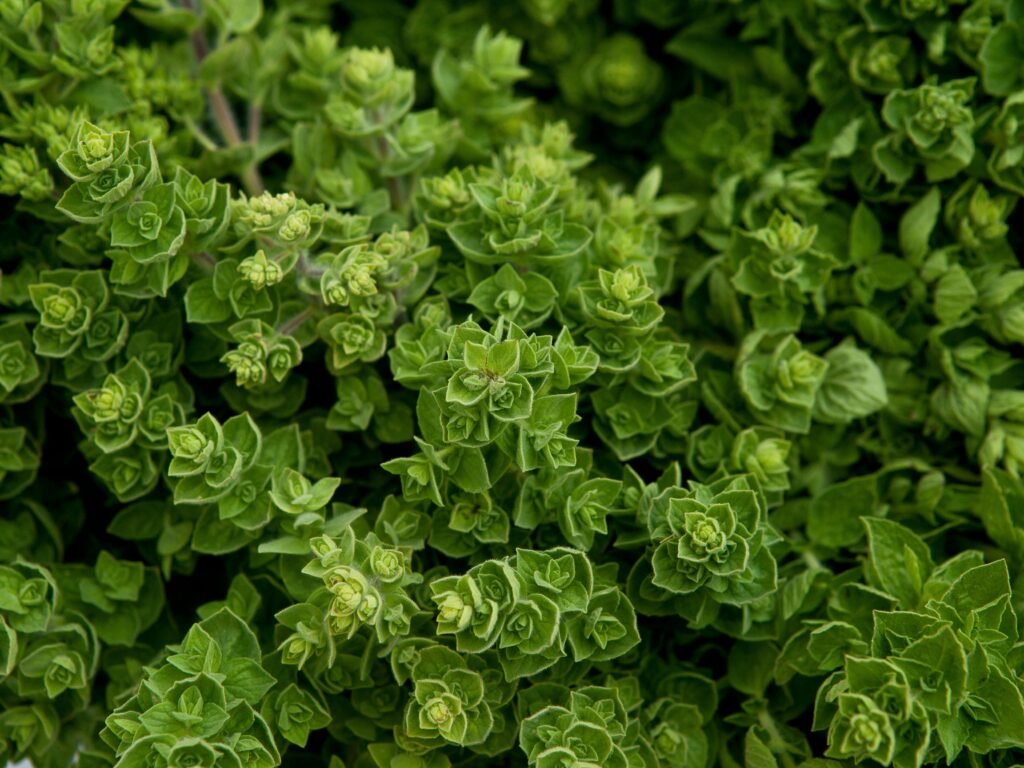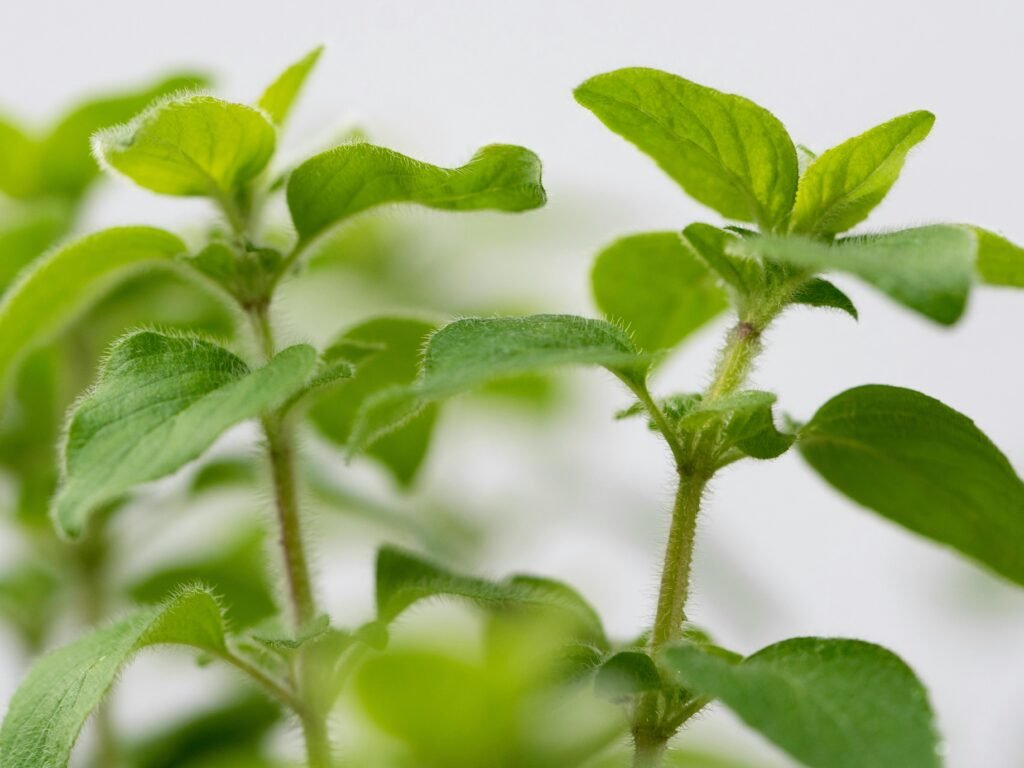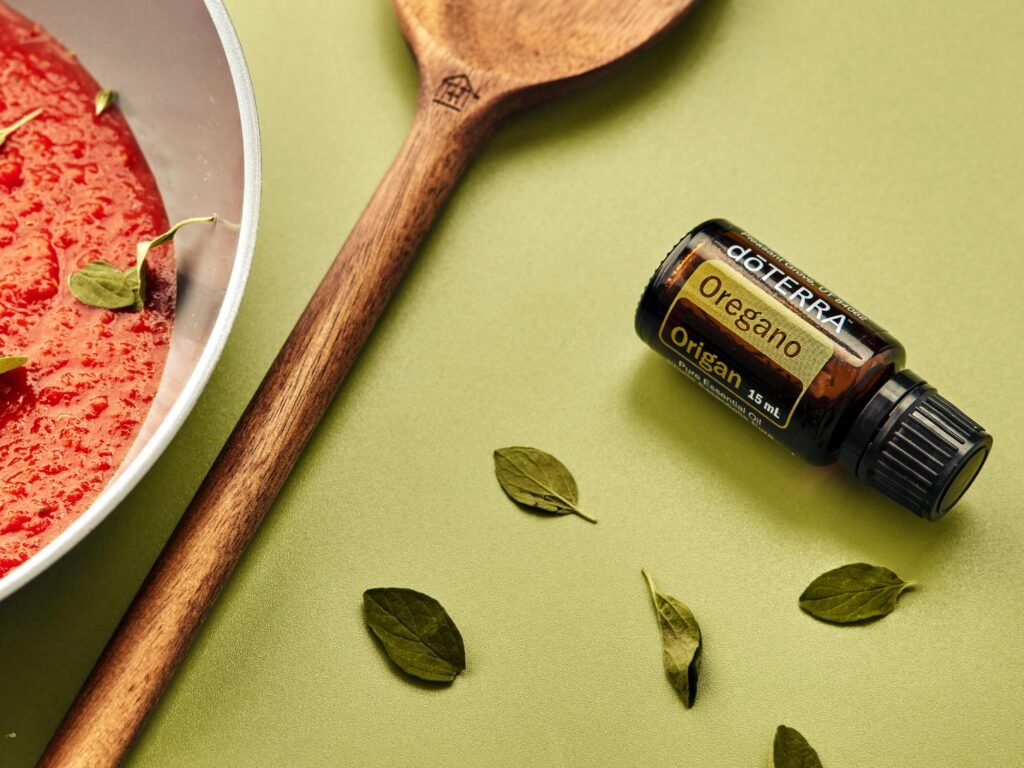Table of Contents
Oregano, scientifically known as Origanum vulgare, is not just a popular culinary herb; it’s also a potent source of medicinal properties that have been treasured for centuries. Join us on this journey as we uncover the secrets of oregano and explore how this humble herb can contribute to your overall health and well-being. Whether you’re a culinary enthusiast seeking to elevate your dishes or someone interested in natural remedies for common ailments, oregano holds promise as a potent ally in your quest for wellness. Let’s embark on this journey together and discover the wonders of oregano for health.
Oregano, scientifically known as Origanum vulgare, has a rich and storied history that dates back thousands of years. Originating in the Mediterranean region, oregano was revered by ancient civilizations such as the Greeks, Romans, and Egyptians for its aromatic flavour and medicinal properties. The name “oregano” is derived from the Greek words “oros,” meaning “mountain,” and “ganos,” meaning “joy” or “brightness,” reflecting its natural habitat and uplifting qualities.
Ancient Greeks and Romans valued oregano for its culinary uses, as well as its perceived health benefits. It was used to flavour a variety of dishes, including meats, vegetables, and bread, and was also believed to have medicinal properties, ranging from digestive aid to respiratory support.
Over time, oregano spread beyond the Mediterranean region to other parts of Europe, Asia, and the Americas, where it adapted to different climates and became a staple herb in various cuisines worldwide. Today, oregano is cultivated globally and is cherished for its culinary versatility, as well as its potential health-promoting properties. Whether used fresh or dried, oregano continues to be a beloved herb that adds depth of flavour and a touch of history to dishes around the world.
NUTRITIONAL VALUE

Oregano, a fragrant and flavourful herb commonly used in Mediterranean cuisine, boasts a modest yet notable nutritional profile. A 100-gram serving of fresh oregano leaves provides approximately 89 calories and is a rich source of essential nutrients. Oregano is particularly abundant in vitamins and minerals, including vitamin K, which supports bone health and blood clotting, and vitamin E, an antioxidant that protects cells from oxidative damage.
Additionally, oregano contains significant amounts of iron, calcium, manganese, and magnesium, which play crucial roles in various bodily functions, including oxygen transport, bone health, and muscle function. Oregano also contains potent phytochemicals, such as carvacrol and thymol, which possess antimicrobial and antioxidant properties. Incorporating oregano into your diet not only adds flavour to dishes but also provides essential nutrients and potential health benefits.
HEALTH BENEFITS

Oregano, beyond its culinary appeal, offers an array of potential health benefits due to its rich nutritional profile and bioactive compounds.
ANTIOXIDANT ACTIVITY
Oregano is rich in antioxidants, including phenols such as rosmarinic acid and flavonoids like quercetin and apigenin. These antioxidants help neutralize harmful free radicals in the body, protecting cells from oxidative stress and reducing the risk of chronic diseases such as heart disease, cancer, and neurodegenerative disorders like Alzheimer’s disease.
ANTIMICROBIAL PROPERTIES
Oregano contains compounds like carvacrol and thymol, which possess potent antimicrobial properties. These compounds inhibit the growth of bacteria, fungi, and parasites, making oregano effective against foodborne pathogens and potentially supporting gut health. Oregano oil, in particular, has been studied for its antimicrobial effects against various strains of bacteria, including antibiotic-resistant strains like MRSA.
ANTI-INFLAMMATORY EFFECTS
Oregano contains compounds that have anti-inflammatory properties, such as rosmarinic acid and beta-caryophyllene. These compounds help reduce inflammation in the body, potentially alleviating symptoms of inflammatory conditions such as arthritis, asthma, and inflammatory bowel disease.
DIGESTIVE AID
Oregano has been used traditionally to support digestive health and alleviate gastrointestinal discomfort. Compounds found in oregano, such as carvacrol and thymol, may help stimulate the secretion of digestive enzymes, promoting efficient digestion and relieving symptoms of indigestion, bloating, and gas.
IMMUNE SUPPORT
Oregano is rich in vitamins and minerals that support immune function, including vitamin C, vitamin A, iron, and manganese. Additionally, oregano contains compounds like carvacrol and thymol, which have immune-modulating effects and may help strengthen the body’s defenses against infections.
HEART HEALTH
Oregano contains compounds that may benefit heart health, such as carvacrol, rosmarinic acid, and beta-caryophyllene. These compounds help lower cholesterol levels, reduce blood pressure, and improve blood vessel function, potentially reducing the risk of heart disease and stroke.
ANTI-CANCER POTENTIAL
Some studies suggest that compounds found in oregano, such as carvacrol and rosmarinic acid, may have anticancer properties. These compounds have been shown to inhibit the growth of cancer cells and induce apoptosis (cell death) in various types of cancer, including breast, colon, and prostate cancer.
RESPIRATORY SUPPORT
Oregano has been used traditionally to support respiratory health and relieve symptoms of respiratory infections such as coughs and congestion. Compounds like carvacrol and thymol have expectorant and decongestant properties, helping to clear mucus from the airways and alleviate coughing.
ANTIDIABETIC EFFECTS
Some research suggests that oregano may help regulate blood sugar levels and improve insulin sensitivity. Compounds found in oregano, such as rosmarinic acid and flavonoids, may enhance glucose metabolism and reduce the risk of diabetes complications.
BONE HEALTH
Oregano is a good source of vitamin K, which plays a crucial role in bone metabolism and calcium absorption. Adequate vitamin K intake may help improve bone density and reduce the risk of osteoporosis and fractures.
PRECAUTIONS

While oregano offers numerous health benefits, there are certain precautions and potential drawbacks to consider, particularly for certain individuals. Here are detailed precautions and cons associated with oregano:
ALLERGIC REACTIONS
Some individuals may be allergic to oregano or develop allergic reactions upon exposure. Symptoms of oregano allergy may include skin rash, itching, swelling, or difficulty breathing. Individuals with known allergies to other plants in the Lamiaceae family, such as mint or basil, may be more likely to experience allergic reactions to oregano.
PREGNANCY AND BREASTFEEDING
While oregano is generally considered safe for culinary use during pregnancy, there is limited research on its safety in medicinal doses or concentrated forms such as essential oil. Pregnant or breastfeeding women should exercise caution and moderate their consumption of oregano, particularly oregano supplements or essential oils, to avoid potential adverse effects. High doses of oregano may stimulate uterine contractions and could potentially lead to miscarriage or premature labour.
BLOOD CLOTTING
Oregano contains compounds like thymol and carvacrol, which may have mild blood-thinning effects. While this can be beneficial for cardiovascular health in moderation, individuals taking anticoagulant medications such as warfarin should use caution when consuming large amounts of oregano or oregano supplements to avoid potential interactions and excessive blood thinning.
STOMACH UPSET
In some cases, consuming large amounts of oregano or oregano oil may cause stomach upset, including nausea, vomiting, and diarrhoea. Oregano oil, in particular, is highly concentrated and can be irritating to the digestive tract when consumed in excess or on an empty stomach.
SKIN SENSITIVITY
Oregano essential oil is potent and may cause skin irritation or allergic reactions in some individuals, particularly when used undiluted or in high concentrations. It’s essential to dilute oregano essential oil properly before applying it to the skin and perform a patch test to check for sensitivity. Discontinue use if you experience any adverse reactions such as redness, itching, or burning sensation.
DRUG INTERACTIONS
Oregano supplements or essential oils may interact with certain medications, including anticoagulants, blood pressure medications, and diabetes medications. Oregano may enhance the effects of these medications, leading to potential side effects or complications. If you are taking medication, especially blood thinners or diabetes medication, consult with your healthcare provider before using oregano supplements or essential oils.
INCORPORATING OREGANO INTO YOUR DIET

Incorporating oregano into your diet is not only a flavourful way to enhance your dishes but also a nutritious addition that may offer various health benefits. Here are several detailed ways to use oregano in your cooking:
- Seasoning for Savoury Dishes: Oregano is a staple herb in Mediterranean cuisine and pairs well with a variety of savoury dishes. Use dried oregano to season meats, poultry, and fish before grilling, roasting, or sautéing. Sprinkle oregano on vegetables, potatoes, or grains for added flavour.
- Tomato-Based Dishes: Oregano complements the flavours of tomatoes and is a key ingredient in classic dishes like pizza, pasta sauces, and marinara sauce. Add dried oregano to homemade tomato sauce or sprinkle fresh oregano leaves over pizza before baking for an aromatic boost of flavour.
- Herb-Infused Oils and Vinegar: Infuse olive oil or vinegar with oregano to create flavourful dressings, marinades, or dipping oils. Simply add dried oregano to a bottle of olive oil or vinegar and let it infuse for a few days to a week. Use oregano-infused oil to drizzle over salads, grilled vegetables, or crusty bread.
- Homemade Herb Butter: Mix chopped fresh oregano leaves with softened butter to create a fragrant herb butter. Use herb butter to flavour cooked vegetables, spread on bread or crackers, or melt over grilled meats and seafood.
- Soups and Stews: Oregano adds depth of flavour to soups, stews, and chilli. Add dried oregano to simmering broth or tomato-based soups for a savoury herbal note. Fresh oregano can be added towards the end of cooking for a burst of fresh flavour.
- Grain Salads and Grain Dishes: Incorporate oregano into grain salads like tabbouleh or quinoa salad for an extra layer of flavour. Mix cooked grains like rice or couscous with chopped fresh oregano, lemon juice, olive oil, and your favourite vegetables for a simple and satisfying side dish.
- Homemade Spice Blends: Create your homemade spice blends with oregano as a key ingredient. Combine dried oregano with other herbs and spices like garlic powder, onion powder, paprika, and cumin to make a versatile seasoning mix for meats, vegetables, or roasted potatoes.
- Stuffed Vegetables and Meats: Use oregano to flavour stuffed vegetables like peppers, tomatoes, or zucchini. Mix chopped fresh oregano with breadcrumbs, cheese, and other herbs to create a flavourful filling for stuffed mushrooms, bell peppers, or chicken breasts.
- Herbal Teas and Infusions: Brew fresh or dried oregano leaves in hot water to make a fragrant herbal tea. Oregano tea is believed to have digestive and antioxidant properties and can be enjoyed on its own or mixed with other herbs like mint or lemon balm.
- Garnish for Finishing Touches: Sprinkle chopped fresh oregano leaves over finished dishes just before serving for a vibrant and aromatic garnish. Fresh oregano adds a pop of colour and flavour to dishes like grilled meats, salads, or roasted vegetables.
In conclusion, oregano stands as more than just a fragrant herb used to flavour our favourite dishes; it’s a potent source of potential health benefits backed by centuries of traditional use and modern scientific research. From its antioxidant-rich profile to its antimicrobial and anti-inflammatory properties, oregano offers a diverse range of therapeutic effects that can support overall health and well-being.
Whether incorporated into culinary creations, brewed into herbal teas, or used topically as an essential oil, oregano has demonstrated its versatility as a natural remedy for various ailments. However, it’s essential to use oregano mindfully and in moderation, especially in concentrated forms like essential oil, and to be aware of any potential interactions or sensitivities.
By embracing the power of oregano in our diets and lifestyles, we can harness its potential to enhance our health, from bolstering our immune systems and supporting digestion to reducing inflammation and protecting against chronic diseases. Let oregano be not just a flavouring agent in our kitchens but also a valued ally in our journey toward holistic well-being and vitality.

